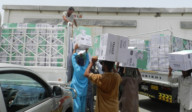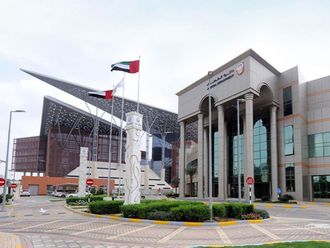
Dubai: The Department of Economic Development (DED) has seized Dh4 million worth of fake electronic goods from a warehouse in Al Aweer in what it has called one of the biggest crackdown on counterfeiting to date.
Officials from the Commercial Compliance and Consumer Protection (CCCP) division of DED tracked and raided the warehouse which contained more than 20,600 carefully packaged duplicates of a variety of popular electronic brands.
Acting manager of CCCP’s Intellectual Property Rights Protection Unit, Khalid Ali Al Youha, said that the DED has put all its efforts to protect trademarks and consumer rights in Dubai
“Dubai being a major logistics hub and retail destination we maintain an extreme vigil against counterfeiting and trademark infringement. The Commercial Compliance and Consumer Protection division conducts regular market inspections and also acts on complaints received, to avoid Dubai being used as a conduit to sell or distribute counterfeit goods,” added Al Youha.
Around 60 people were found working at the warehouse which included fake goods from leading brands LG, Panasonic, Sony, Sharp and Hitachi.
The seized goods weighed a total of 120 tonnes and included 5,300 television sets, 7,000 DVD players and various other devices including stereo sets, and home appliances.
The owner of the goods will be given a Dh30,000 fine, the maximum penalty for trademark infringement, and the confiscated goods will be destroyed.
Kills innovation
“Trademark infringement violates intellectual property rights and Dubai is determined to curb such practices. Counterfeiting corrupts the market, kills innovation and denies a consumer his right to quality and information,” said Al Youha.
Cooperation from traders and consumers will further help the DED protect trademarks in the retail market, added Al Youha.
Complaints against trademark infringement should be submitted to the Commercial Compliance and Commercial Protection division at the DED along with an official complaint letter, copy of the trademark registration, a written authorisation to proceed with the complaint, list of the people or companies alleged to be the offenders, original product sample, sample of the fake product and a list of the similarities and differences between the original and fake product.












